Disclosure: Meeple Mountain received a free copy of this product in exchange for an honest, unbiased review. This review is not intended to be an endorsement.
I never much cared for Indiana Jones. Don’t get me wrong; I’ve got nothing against archaeology as a field, but all that action and adventure seemed like it would be just too…distracting. Not for me a life of derring-do! I’ve always fancied myself more in the John Hammond vein, a man whose respect for science meant hiring others to do the hard work of bringing it to the masses (though I’m not averse to turning a tidy profit in the process).
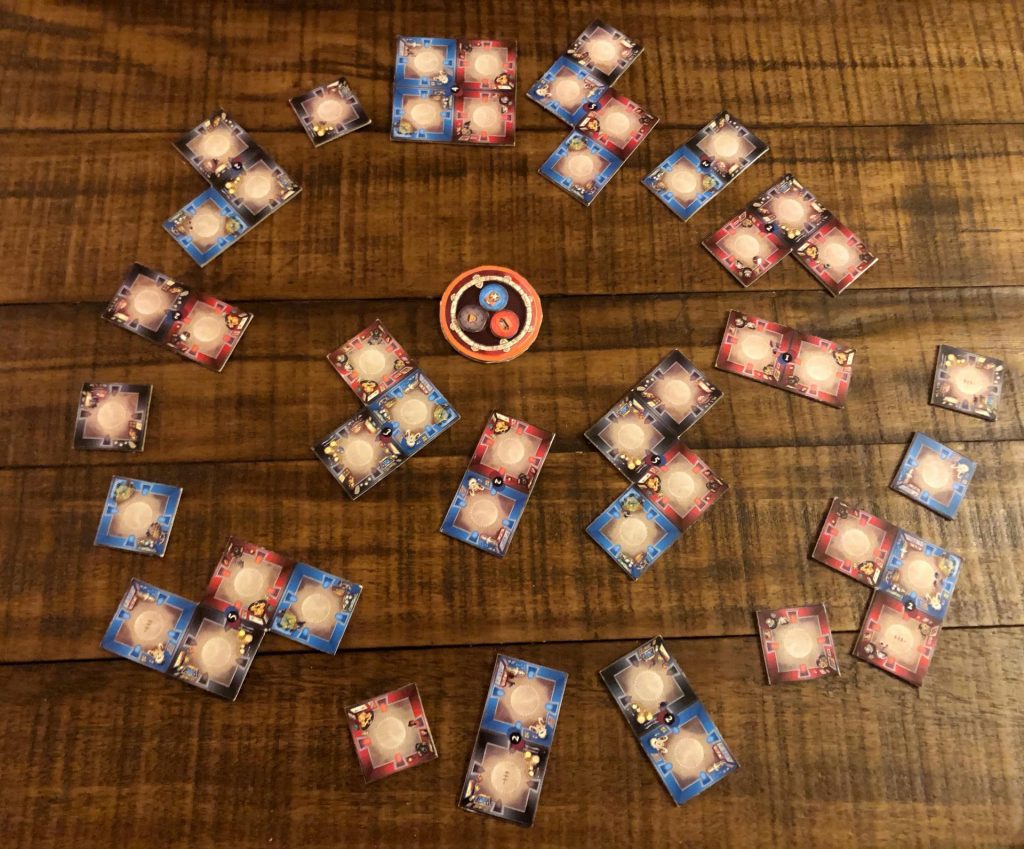
Curators, from Worldshapers Games, lets everyone finally live out their childhood dreams of museum management. In this lighter Euro title, players will be using the game’s clever action selection system to build exhibit wings and procure artifacts to fill them while keeping their eyes on the visitor count and the budget.
Hiring Sprees
In a game of Curators, each player will be vying to have the most number of victory points at the game’s end. Those victory points will come from a few different sources: broadly, cash on hand and how well the museum is constructed and stocked.
Easily the main attraction in Curators is the way players select their actions (called allocations). Each player receives an identical set of 5 discs showing the 5 allocations in the guise of hireable contractors. In typical Euro fashion, each allocation offers a specific action to upgrade the museum, but all of them will be necessary to win. Building the museum wings, gathering artifacts, and moving them out to display requires balancing these interconnected actions.
For example, the Carpenter allows the player to buy a new museum wing polyomino from the central market and attach it to their starting board. But to fill those wings, players will need to accumulate objects in one of three colors, matching the object to the colors of the squares in the wing.
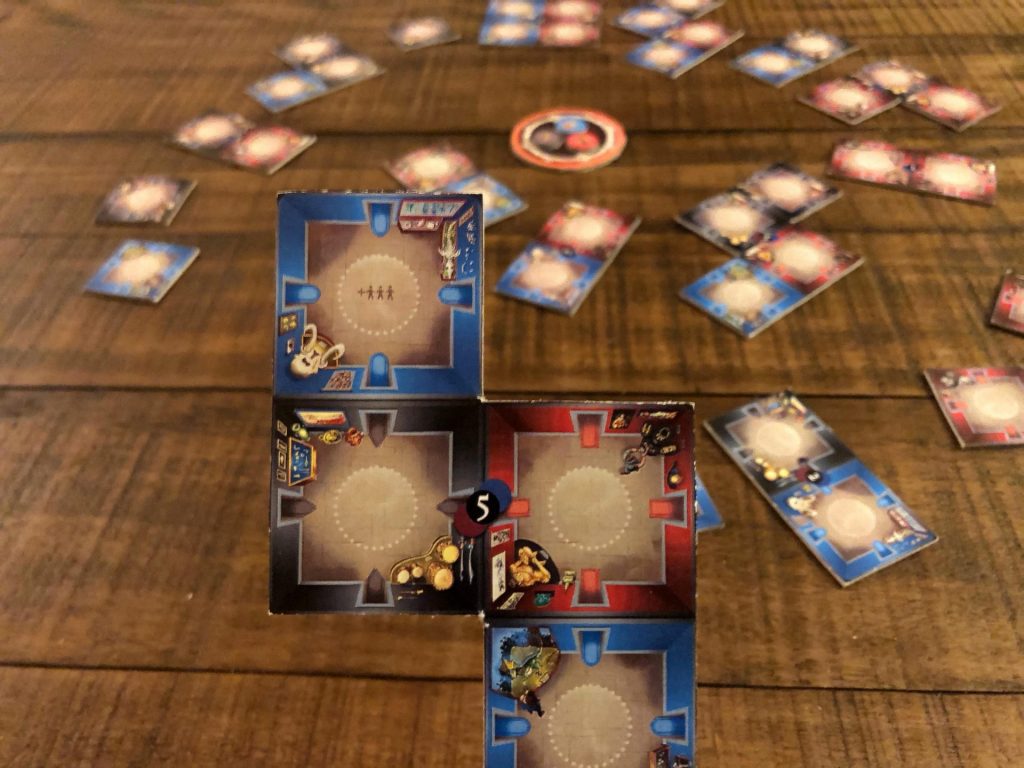
Acquiring those objects means calling on two different contractors: the Archaeologist and the Collection Manager. The Archaeologist lets the player take one object directly into storage while putting another of the same color in the auction house; the Collection Manager allows the player to buy as many of one color from the auction house as they would like, moving their purchases into storage.
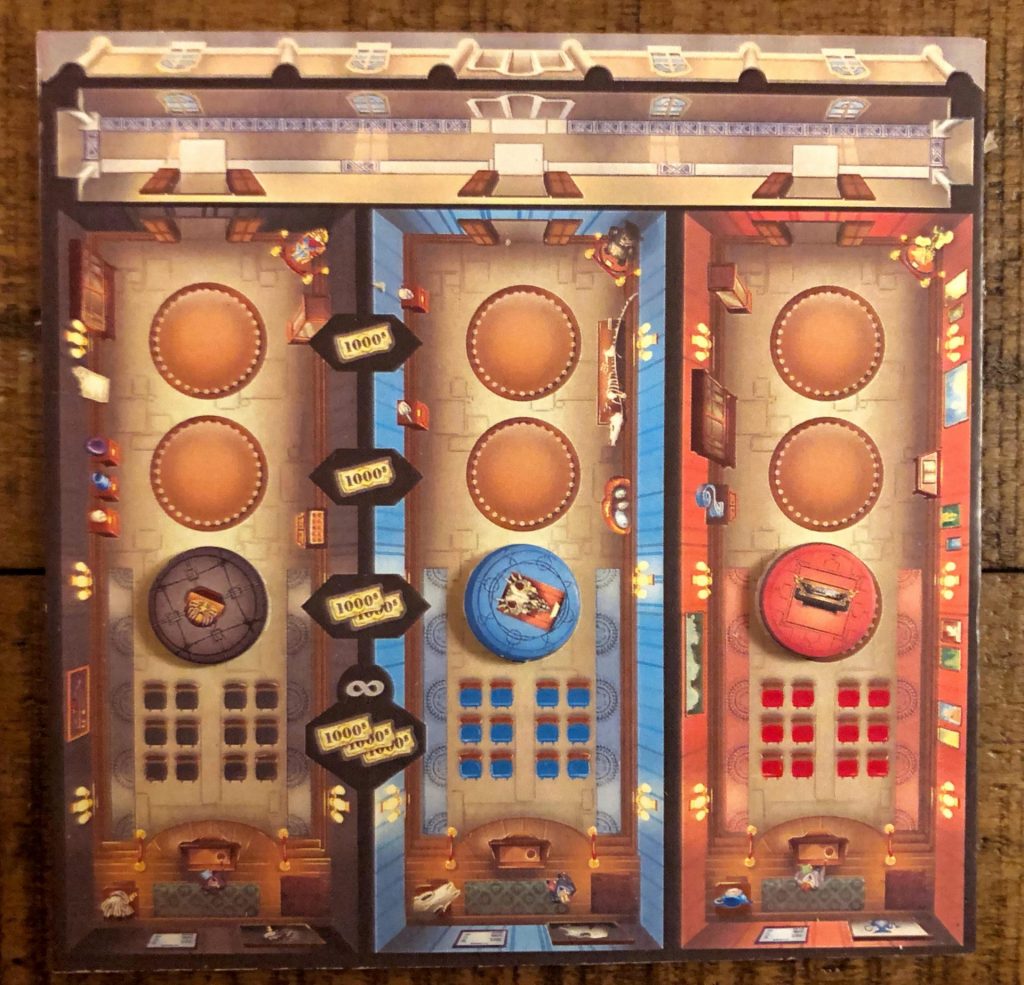
Getting the objects is one thing; getting them ready for display is another. The Restorer allows the player to move one or more like-colored objects from their storage pile into the various wings of the museum. As wings get filled with objects, visitors get added to the player board. The last allocation is the Financial Manager, who allows the player to get an infusion of cash for each visitor.
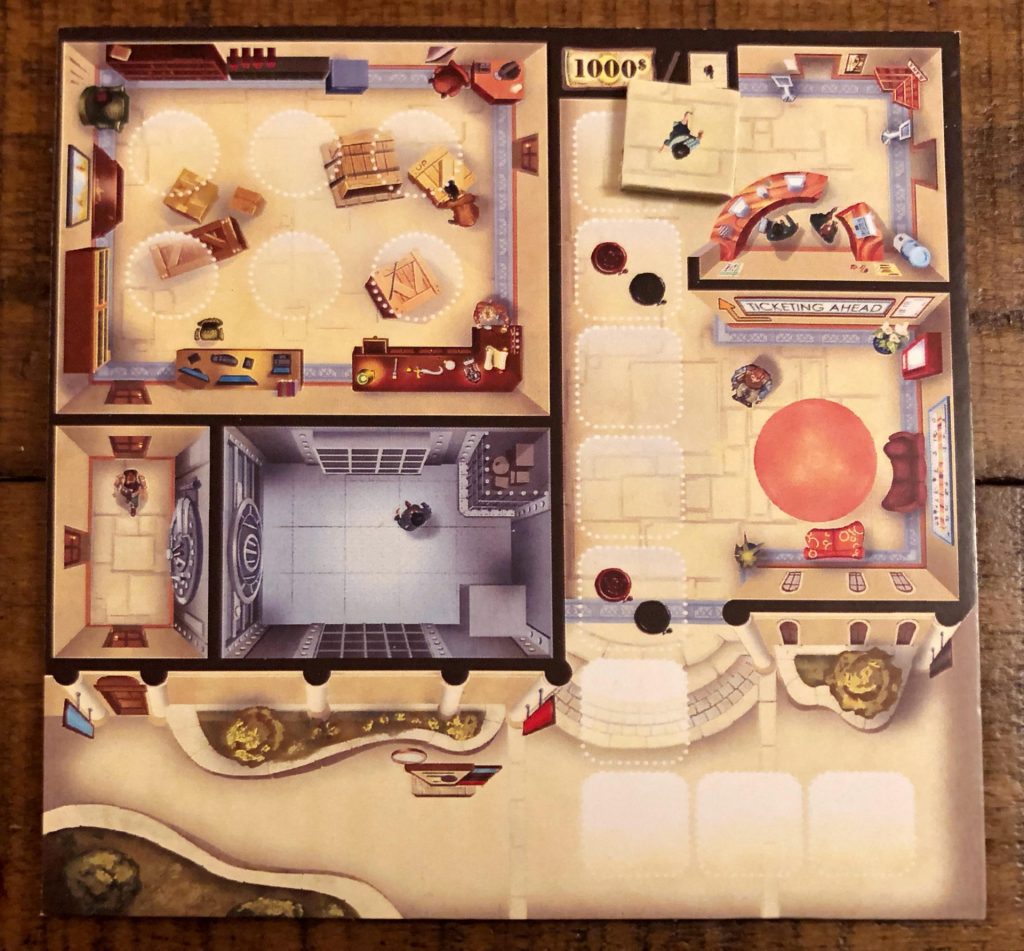
Action Re-Action
On their turn, a player will choose the allocation they want and flip over that disc. Simple enough.
But wait! Each disc is double-sided, with a different allocation showing on the back. When two discs show the same side, the player may flip both on their turn to get a souped-up version of that ability, effectively getting twice the bang for their buck. Doubling the Carpenter, for example, lets the player take two different wings from the central market rather than just one, paying for and attaching both as normal.
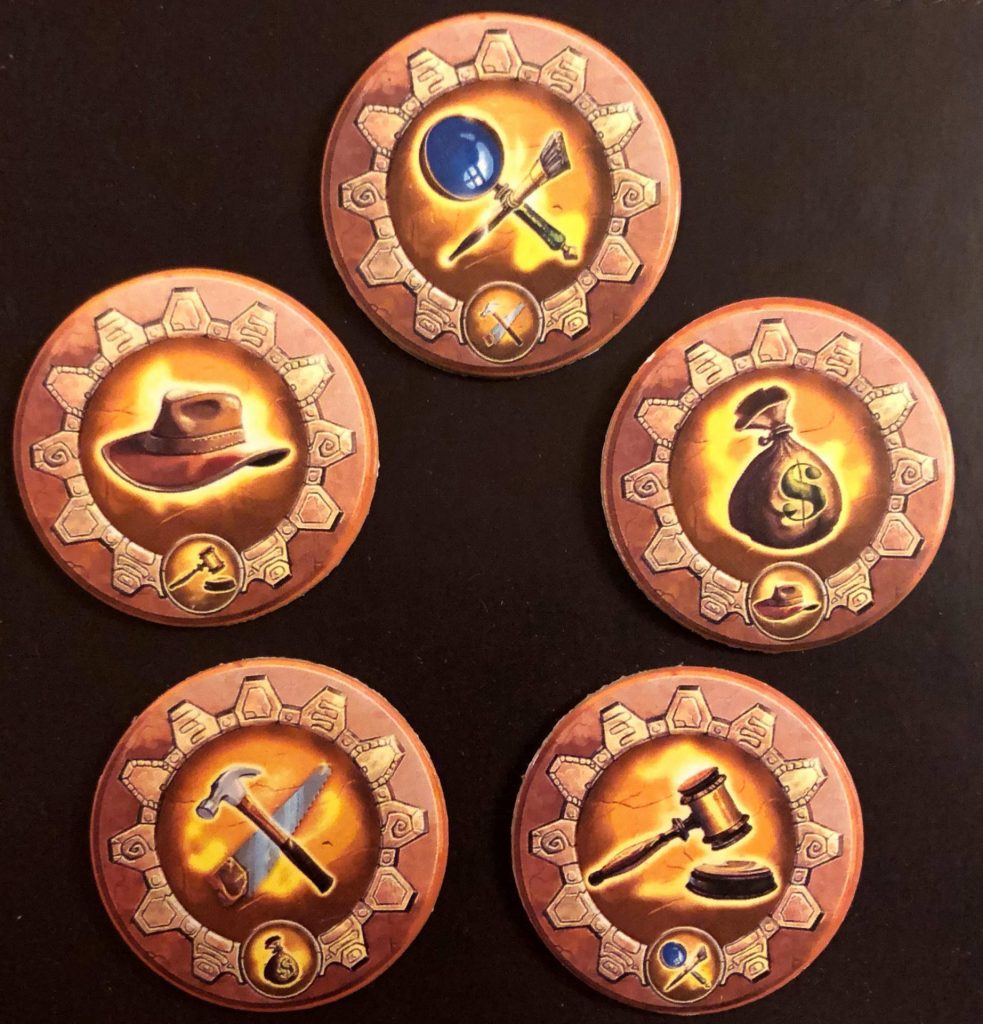
This fantastic twist creates a nifty push-pull dynamic, each turn directly setting up the next. Flipping two discs at a time is way more efficient than taking single actions, but it only works if the player is positioned to take advantage of both uses. Learning how to line up a perfect string of turns — flip this to set up that, take these then place those — means thinking three turns ahead. It’s extremely satisfying when it works out, and even when it doesn’t it’s merely a matter of slower progress rather than none at all.
Self-Guided Tour
It’s worth mentioning that Curators won the 2019 Board Game Design Workshop contest. The reason why is obvious: it’s a tight, clever Euro that plays quickly and never overstays its welcome. The action selection system is obviously great, but all the supporting elements work together well.
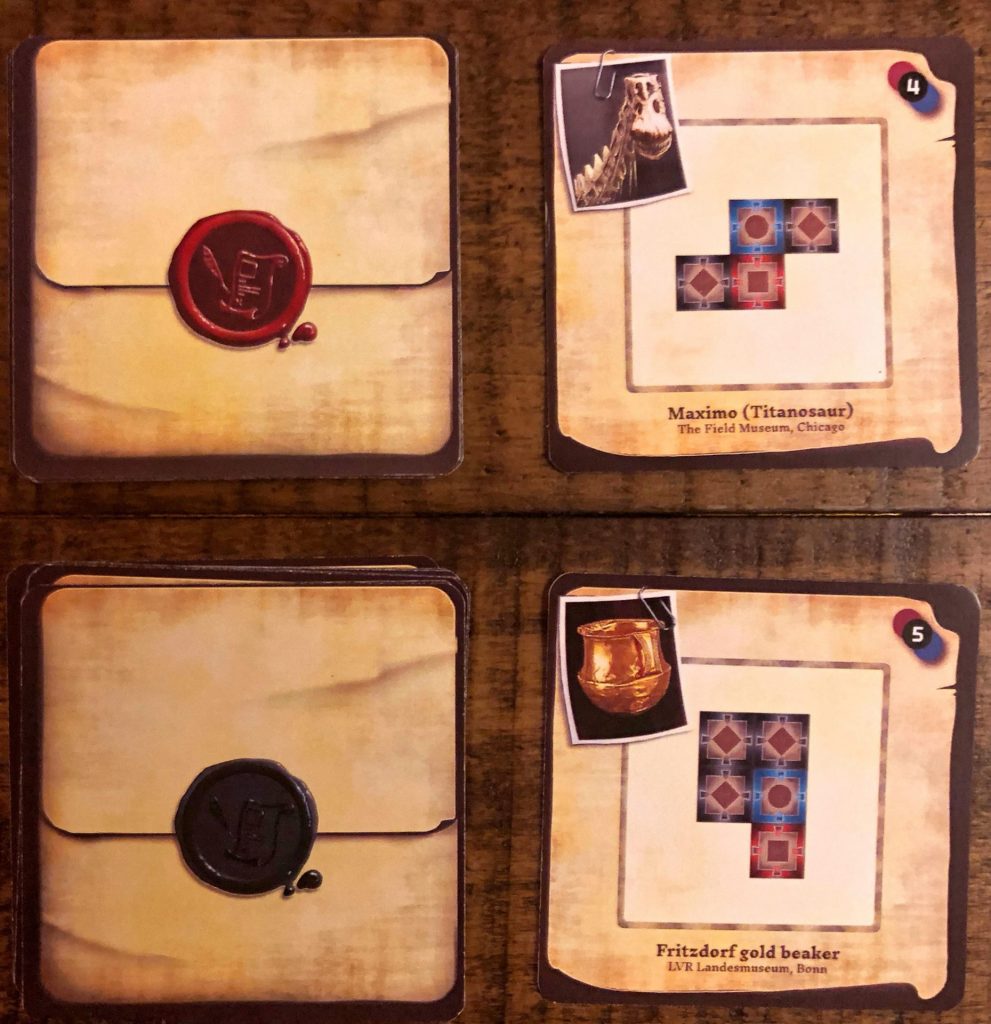
There have been a lot of good polyomino placement games over the last few years, and Curators holds its own in a crowded field. Each player starts with two hidden contracts that require specific arrangements of museum wings in various colors. Completing these contracts earns the player bonus points at the end of the game. Players can get an additional contract at certain visitor counts, allowing skilled arrangers to snag a hefty haul over the course of play. Some wings are also worth points just for being placed and filled with objects, even if they don’t contribute to a contract.
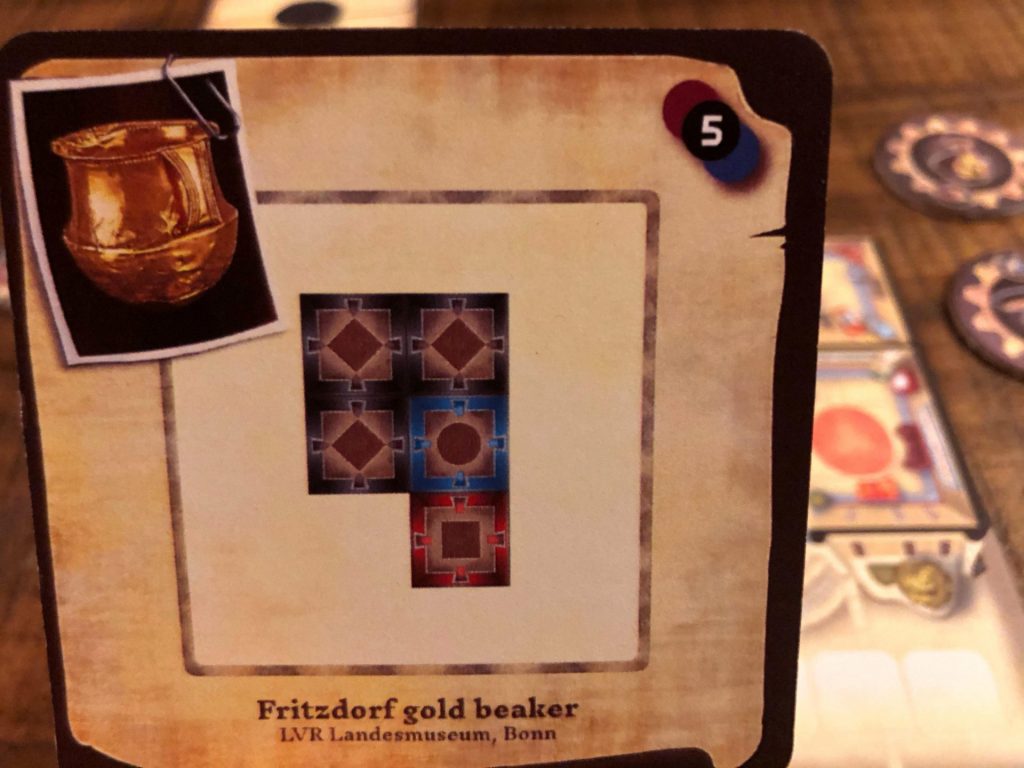
While the placement puzzles aren’t quite as dense as some other titles offer, it’s only because there’s ample room to expand around the edges of the player board, so the pressure to make everything fit isn’t as strong.
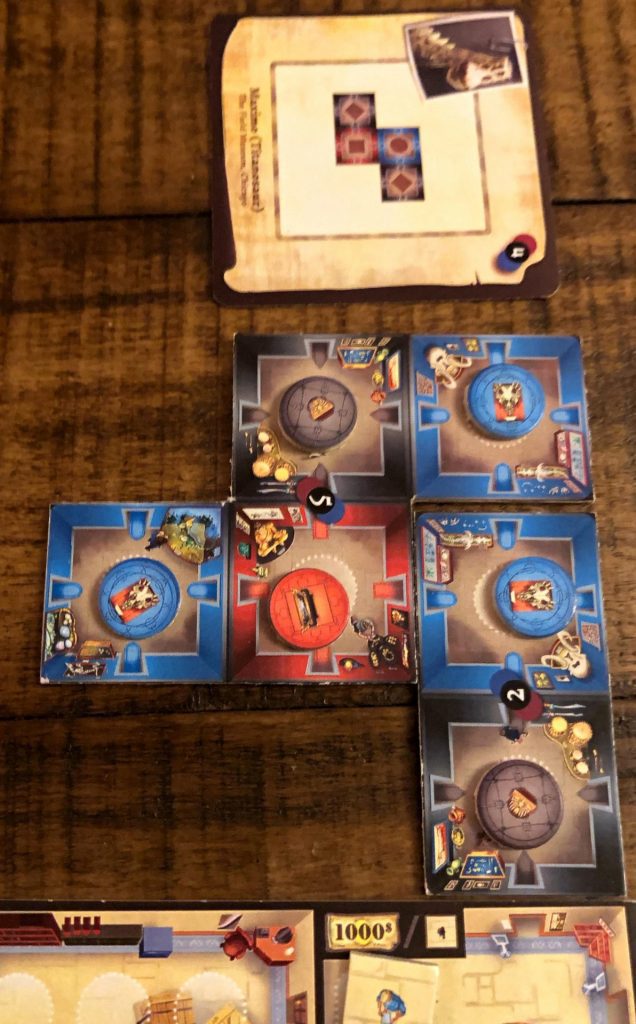
That lowered level of tension runs through every element of the game. Curators is a very accessible title and the trade-off for that strength is that it sometimes feels like everything runs a little too smoothly. Eurogames are often known for providing a “multiplayer solitaire” experience and Curators leans heavily in that direction, offering very few points of interaction and therefore relatively few surprises. While the advanced scoring options do add some depth, it never feels like a struggle against the other players or even the game itself. It’s a relatively straightforward game with clear goals and intuitive gameplay that tests the players’ planning more than their math skills.
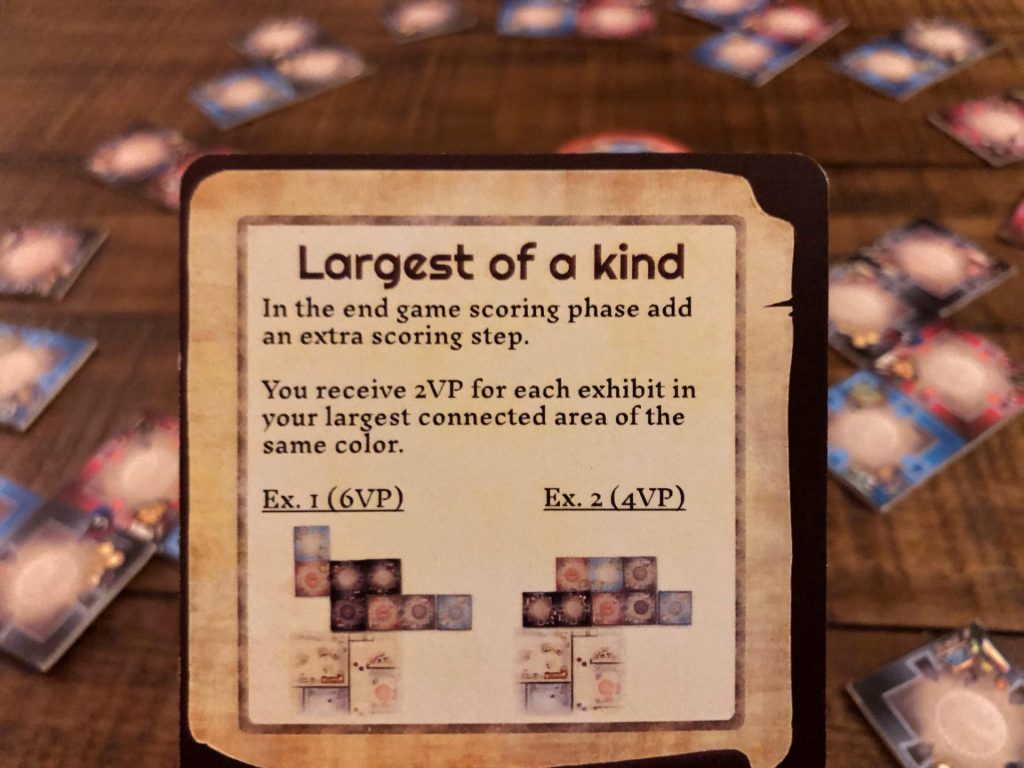
Objet D’art
Personally, that’s what I like most about Curators. Where some Euros are a marathon full of hurdles that can leave players mentally exhausted, this one’s a casual Sunday stroll through a gallery of classic mechanisms. It’s quick and light, easy to learn and play, yet the unique allocation system offers enough opportunities for interesting decision-making to keep players coming back. It’s a perfect introduction to Euros for casual gamers and a refreshing palate-cleanser for those accustomed to heavier games. It doesn’t entirely break new ground, but Curators offers a highly polished experience that earns its place in any game collection.
To pick up this excellent light Euro title, check out Curators on Kickstarter right now!


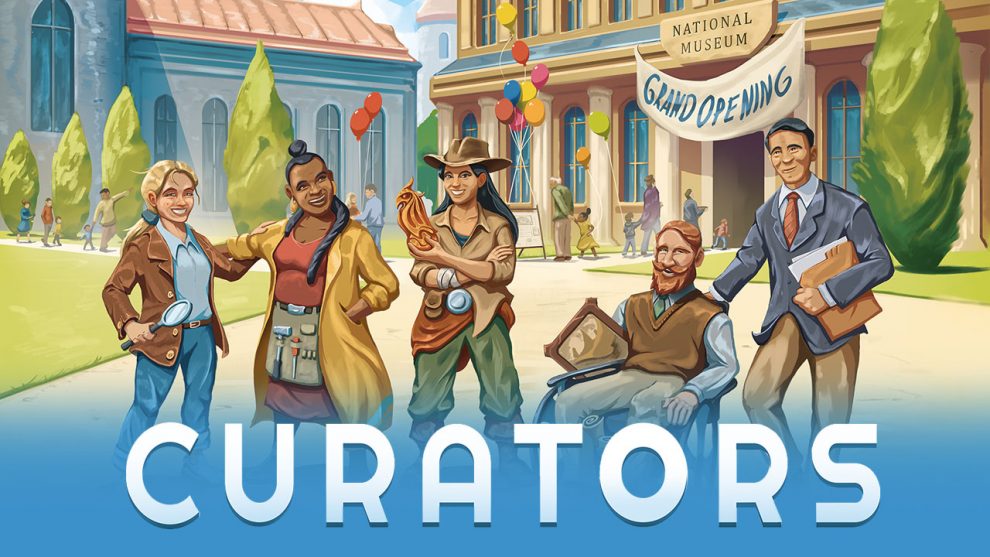

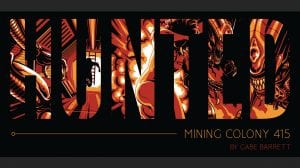






Add Comment